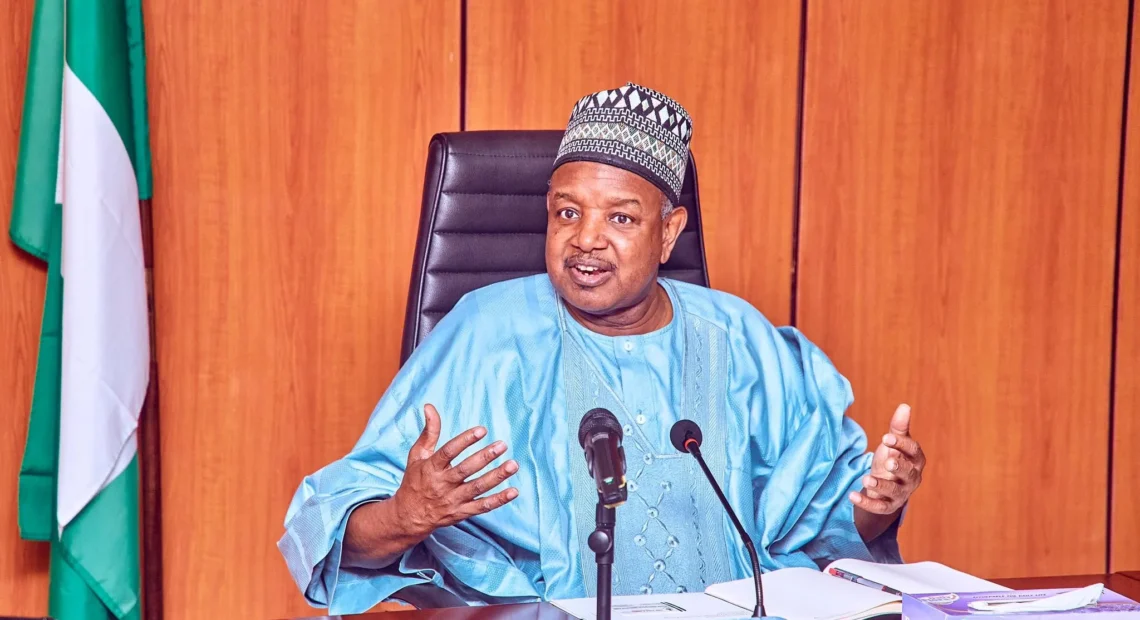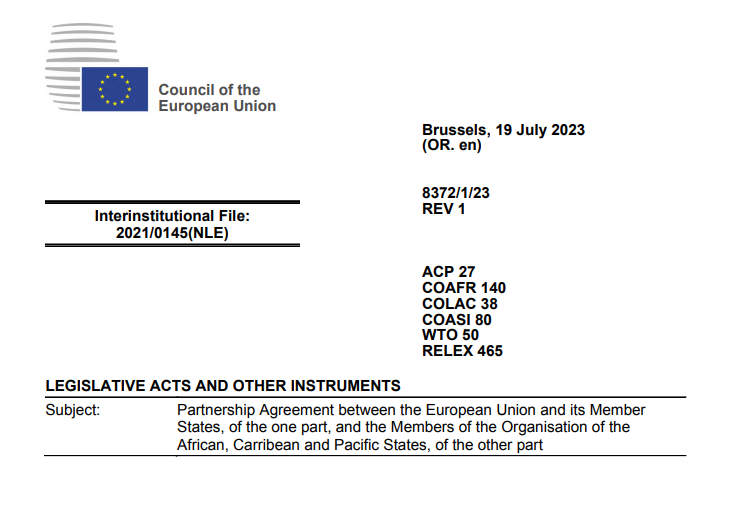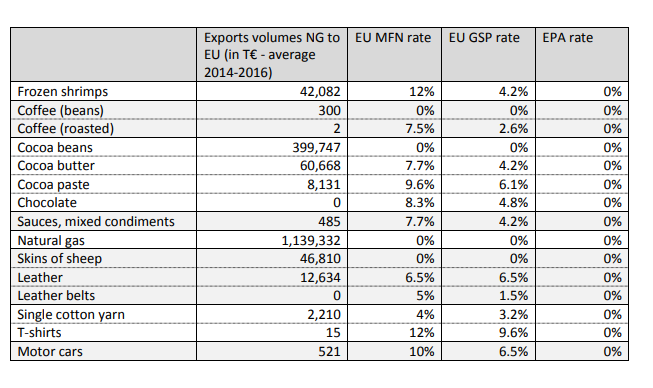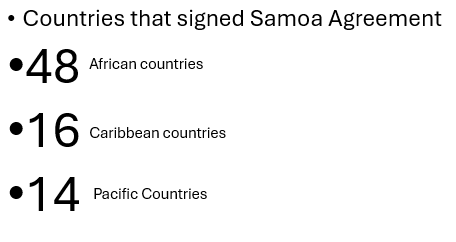See how Samoa Agreement will boost trade between EU and Nigeria

Key points:
-
78 countries, not only Nigeria, signed the EU-ACP Samoa Agreement
-
EU financial support is worth 79.5 billion Euro
-
Nigeria to export goods to EU now
-
More EU investments expected in Nigeria
-
EU to follow-up the agreement with training activities
By Emmanuel Kwada
The Samoa Agreement, signed between the European Union and 48 African, 16 Caribbean and 14 Pacific countries came into effect in November last year, but in recent weeks, it has generated controversies. Nigeria signed the agreement only recently. Apparently, it is settled that no article or clause in the 403-page document makes reference to LGBT as a condition of the mutual relationship between the EU and the ACP countries. The cornerstone of the agreement is, essentially, about social development and trade relations.
The EU-ACP agreement signed in Samoa on 15 November, 2023 was a culmination of series of agreements between the two regions spanning over a period of 20 years. The benefits to the EU and the ACP countries are spelt out in several explanatory documents.
On the issue of development, the EU stated that “Under the new long-term EU budget 2021-2027, the EU finances most of its development programmes for ACP partner countries through the Neighbourhood, Development and International Cooperation Instrument – Global Europe (NDICI). [The] NDICI will be granted a total financial envelope of around €79.5 billion (in current prices).”
The source of the $150 billion as the amount involved in the deal, as published in the media, was not clear.

Cover page of the Samoa Agreement signed between EU and ACP countries
The fund will be deployed to tackle six main issues in the ACP countries, among them democracy and human rights, sustainable economic growth and development, climate change, human and social development, peace and security, and migration and mobility. In essence, governments of the ACP countries and civil society groups will benefit from EU grants in tackling the six issues of priority under the Samoa Agreement.
In terms of trade development, the Samao Agreement will see to the liberalization of trade between EU and ACP countries, based on certain conditions. The document says the Economic Partnership Agreement will:
- help West Africa to integrate better into the global trading system and will support investment and economic growth in the region.
- increase West African exports to the EU
- stimulate investment and contribute to developing productive capacity, with a positive effect on employment.
Access to the EU market is permanent, full and free to all products.
The agreement opens the window for more exports from Nigeria to European Union, on the condition that such products are raw materials or have some value added to them from the country of origin before they are exported.
It specifies the following: “While the EU opens its market completely from day one, West Africa will remove import tariffs only partially over a 20-year transition period. Moreover, producers of 25% of the most sensitive goods will enjoy permanent protection from competition.”.
The table below shows the goods Nigeria could export to EU with little or no restrictions:

A table showing the goods Nigerians can export to EU with reduced or no tariff under Samoa Agreement. Source: EPA Trade Document
Previously, the issue of tariff has been a barrier for the export of goods from Nigeria into the EU, but since Nigeria has signed the agreement, some goods can now be exported to EU. The tariff aspect of the agreement specifies the following conditions:
“Except arms and ammunition, the EU grants 100% duty-free and quota-free access to all imports coming from Ghana and Côte d’Ivoire [Nigeria now included], under the interim EPA. The same will apply to all West African products, from the first day of entry into application of the regional West Africa EPA. Access to the EU market is permanent, full and free to all products.
“West African countries will liberalise imports coming from the EU over a period of 20 years. According to the categories already set out in the ECOWAS Common External Tariff (CET)
-
- Group A goods (essential social goods, basic necessities, basic commodities, capital goods and specific inputs), currently having 0 or 5% duties, will be liberalised 5 years after the application of the EPA
- Group B goods (mainly inputs and intermediate goods), currently having 0, 5 or 10% duties, will be liberalised within 10-15 years after the application of the EPA
- Group C goods (some final consumption goods), currently having 5, 10 or 20% duties, will be liberalised within 10-20 years after the application of the EPA.
“A significant portion of tariff lines (25%) will be entirely excluded from liberalisation and remain subject to normal duty. These include sensitive products such as agriculture/fishery products and sensitive final consumption goods.”
It added that the “Flexible rules of origin enable EPA West Africa countries to export products with inputs from other countries, especially in key sectors – agriculture, fisheries and textiles and clothing. For example, a textile product can enter the EU duty-free if at least one stage in its production – such as weaving or knitting – took place in an EPA country.”

How the 78 countries that signed agreement with EU are spread. Source: EU and ACP agreement
To ensure businesses in countries that have signed the agreement benefit from the deal, the EU promises set up a desk to enlighten the people. The document says: “The EU provides Aid for Trade technical assistance. This helps countries to adapt their customs procedures and reduce paperwork. For you, this means less hassle when dealing with customs. For e.g., the EU provides financial and technical support to help West African farmers meet the EU’s sanitary and phytosanitary (SPS) standards. EU also often sends a team of experts from the Health and Food Audits and Analysis Directorate to give recommendations on how to solve export problems.”
Read Also: Tinubu should energize industrial sector for economic growth:
Sign up for The Insight Newsletter
Get in-depth, research and data-based interpretative reports from around Nigeria.



